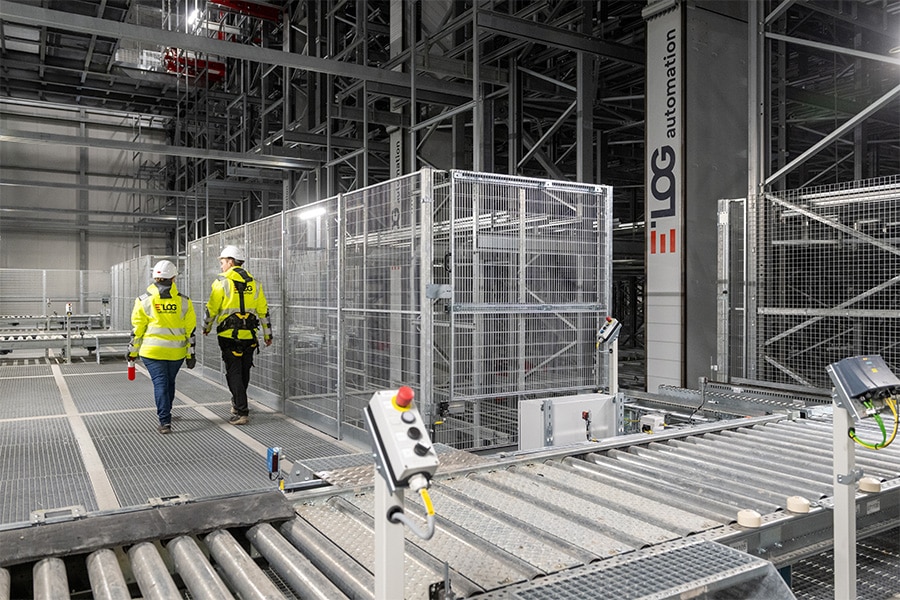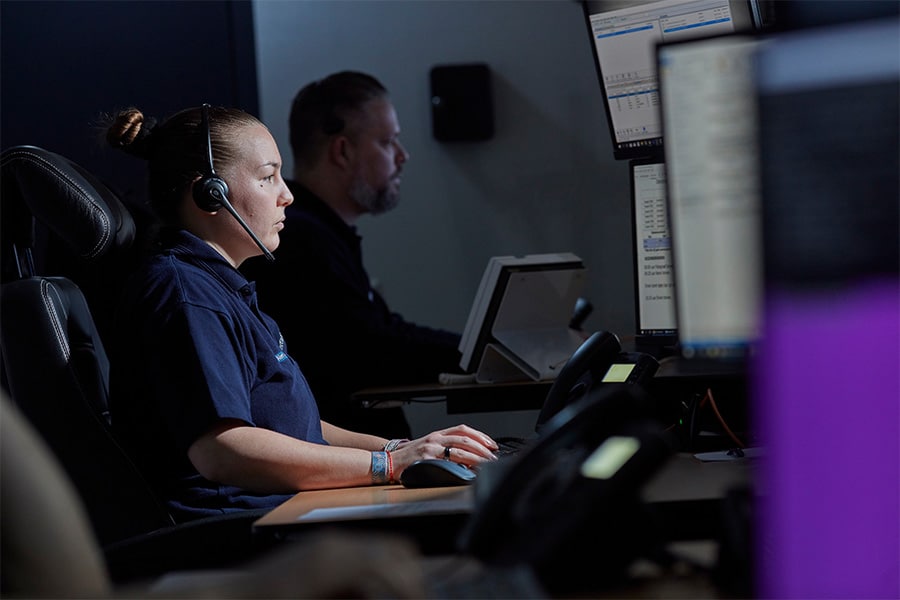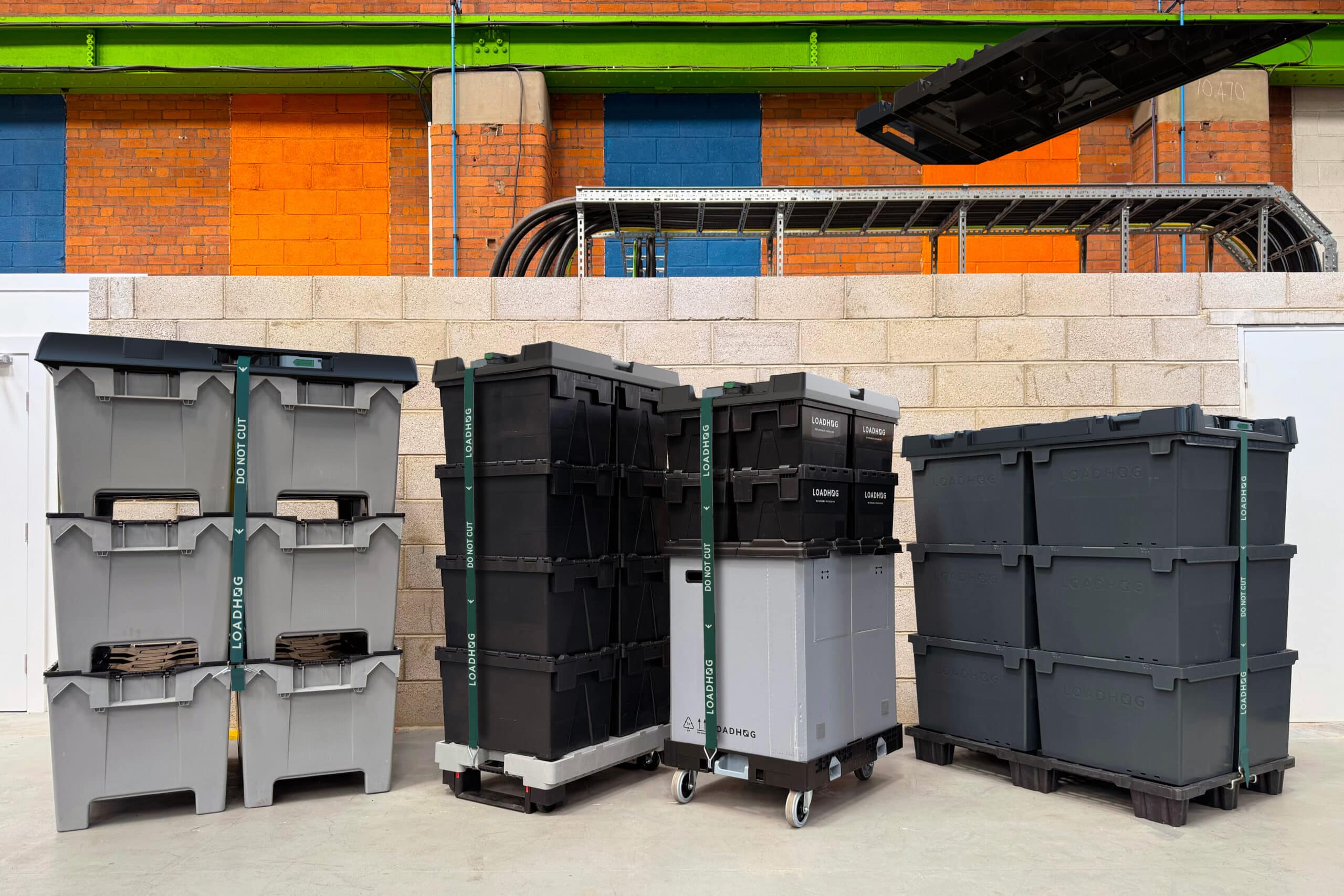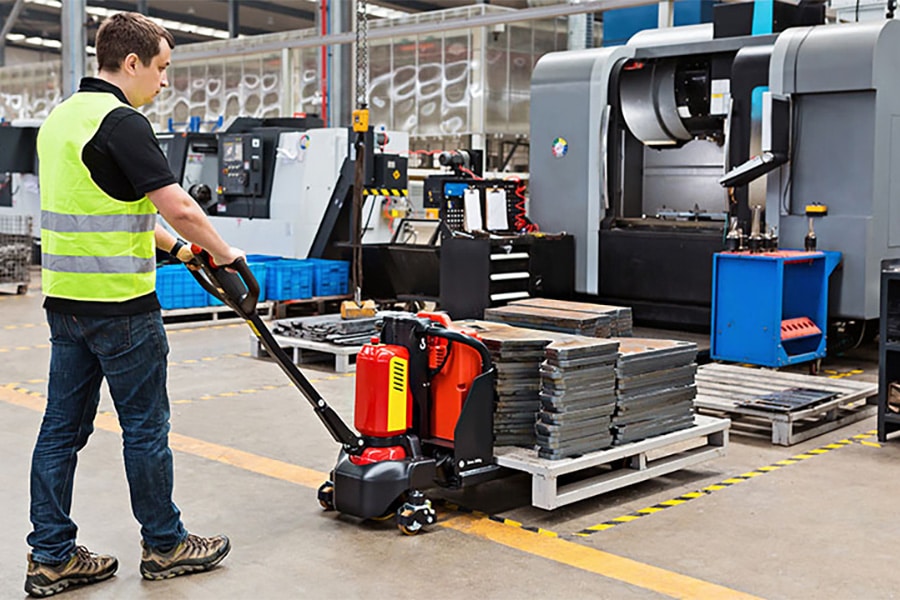
Lithium-ion batteries: the underestimated danger in warehouses
Why Batteryguard is the solution for safe battery management
Lithium-ion batteries have become indispensable in modern distribution centers and warehouses. They power electric pallet trucks, forklifts and a host of other equipment. Ideal for increasing efficiency and reducing maintenance costs. But the downside? These powerful batteries pose a serious safety risk that is often underestimated. The dangers of lithium-ion batteries increasingly make the news: explosions and fires that break out in the blink of an eye. It's a risk you can't ignore as a business owner. "The biggest problem is that you often cannot tell from the outside whether a battery is damaged," explains Jos Kools, lithium-ion expert at Batteryguard, out. "But one fall or hit can be enough to cause a chain reaction inside without you even realizing it."
Lithium-ion batteries: powerful energy source, big risk
When a damaged battery is charged, it can lead to a so-called thermal runaway. In this process, the battery becomes extremely hot at lightning speed and can even explode. This process happens so quickly that an incipient battery fire can become an uncontrolled blaze within seconds. In a hectic warehouse environment with lots of personnel and valuable inventory, this is a disaster you absolutely want to avoid.
A good example of a company that takes risk seriously is Wehkamp, the well-known online department store. "For their logistics center, Wehkamp has invested in a Batteryguard battery safe for the safe charging of their lithium-ion batteries," says Kools. "Think of batteries of mobile workstations, electric pallet trucks and hand scanners," Jos Kools explains. "Battery fire not only causes damage, but can also lead to long-term business downtime and risks for their staff."
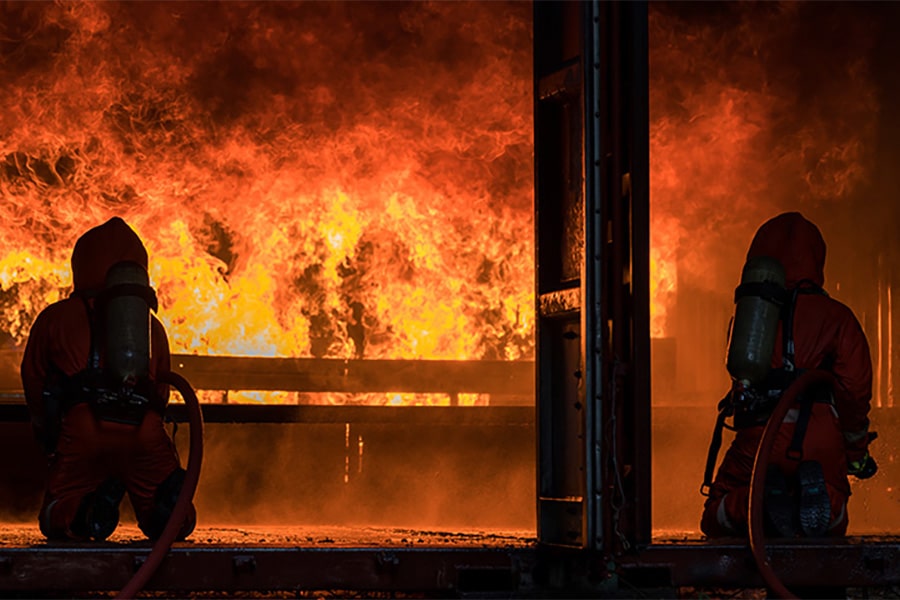
New security standard VDMA 24994
Fortunately, new safety standards have been developed that specifically address the risks associated with lithium-ion batteries: the VDMA 24994 specifications. This describes test requirements for lithium-ion battery safes, taking into account the extreme heat generation and explosive pressure buildup that can occur in a battery fire.
"With the VDMA 24994, not only companies but also insurers finally know where they stand," explains Jos Kools. "Batteryguard XL has already been tested with lithium-ion batteries in the development phase. This makes Batteryguard one of the first truly secure storage solutions on the market."
Difference with PGS 37-2
In the Netherlands, the PGS 37-2 guidelines are often referred to when it comes to battery safety. This guideline stems from the EN 14470-1 standard, which was originally developed for the storage of flammable liquids. This type of cabinet protects the contents from fires starting outside the cabinet, but does not take into account the internal pressure and heat of a battery fire. The new VDMA 24994 specifications provide much better protection against the specific risks posed by lithium-ion batteries.

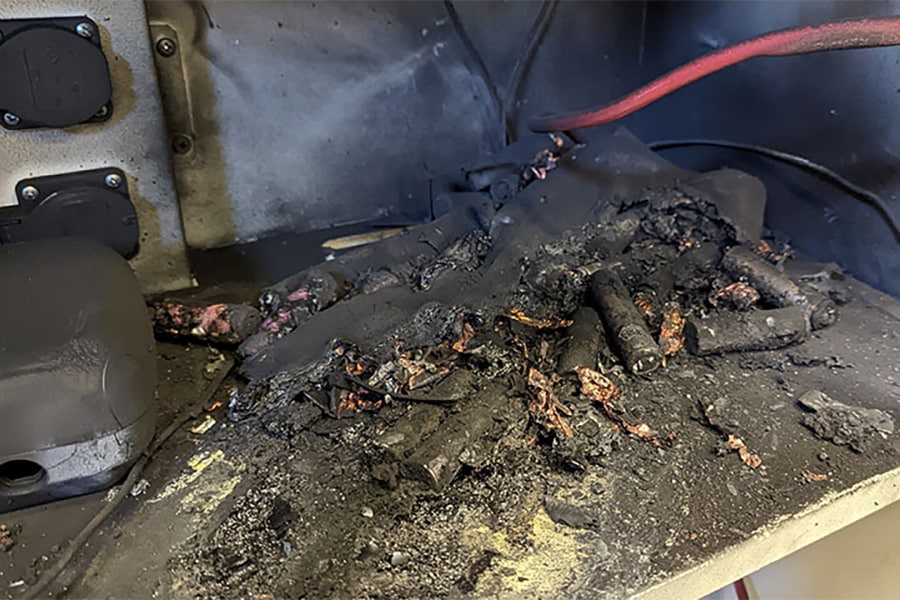
What makes Batteryguard so safe?
Batteryguard battery safes are specially designed to contain battery fires. With a robust design and doors that remain closed even under extreme pressure, these safes prevent flames or hot gases from escaping. This significantly reduces the risk of damage to your inventory and infrastructure.
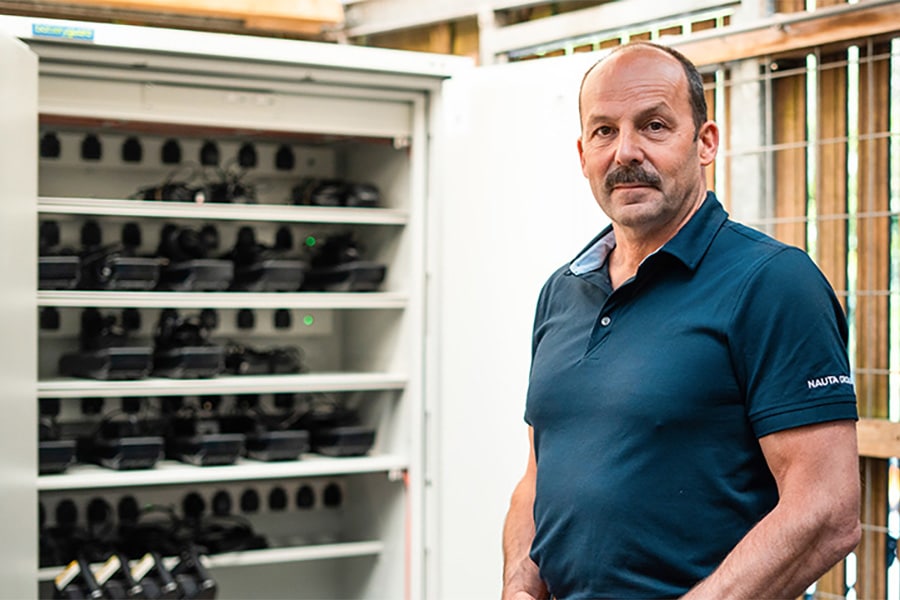
Customized safety: Batteryguard as a smart choice
Batteryguard is not only about security, but also convenience. The safes feature integrated charging stations and smart layouts, such as pull-out drawers.
"We designed these safes to be flexible so you can store and charge all kinds of batteries - from integrated charging stations for handheld scanners to convenient drawers for large forklift batteries. So you have everything in one central, safe place without any hassle," Kools said.
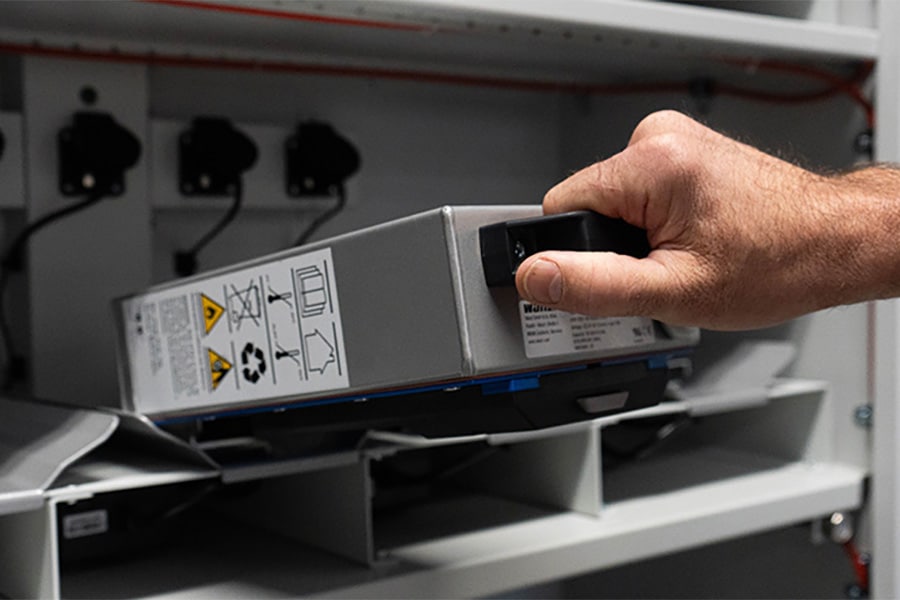
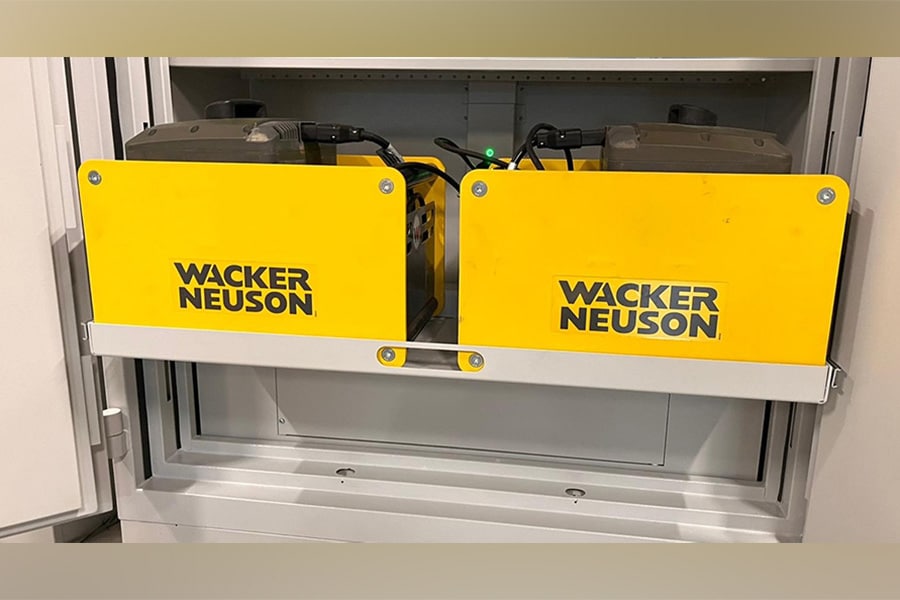
Take the safe bet
Are you also dealing with lithium-ion batteries in your distribution center or warehouse? Contact Batteryguard today for a no-obligation consultation. Our experts will be happy to help you make your battery management safe and future-proof. Want to read more first? Download our free whitepaper and find out all about the dangers of lithium-ion batteries and how to protect your business from this underestimated risk.
Heeft u vragen over dit artikel, project of product?
Neem dan rechtstreeks contact op met Batteryguard.
 Contact opnemen
Contact opnemen

